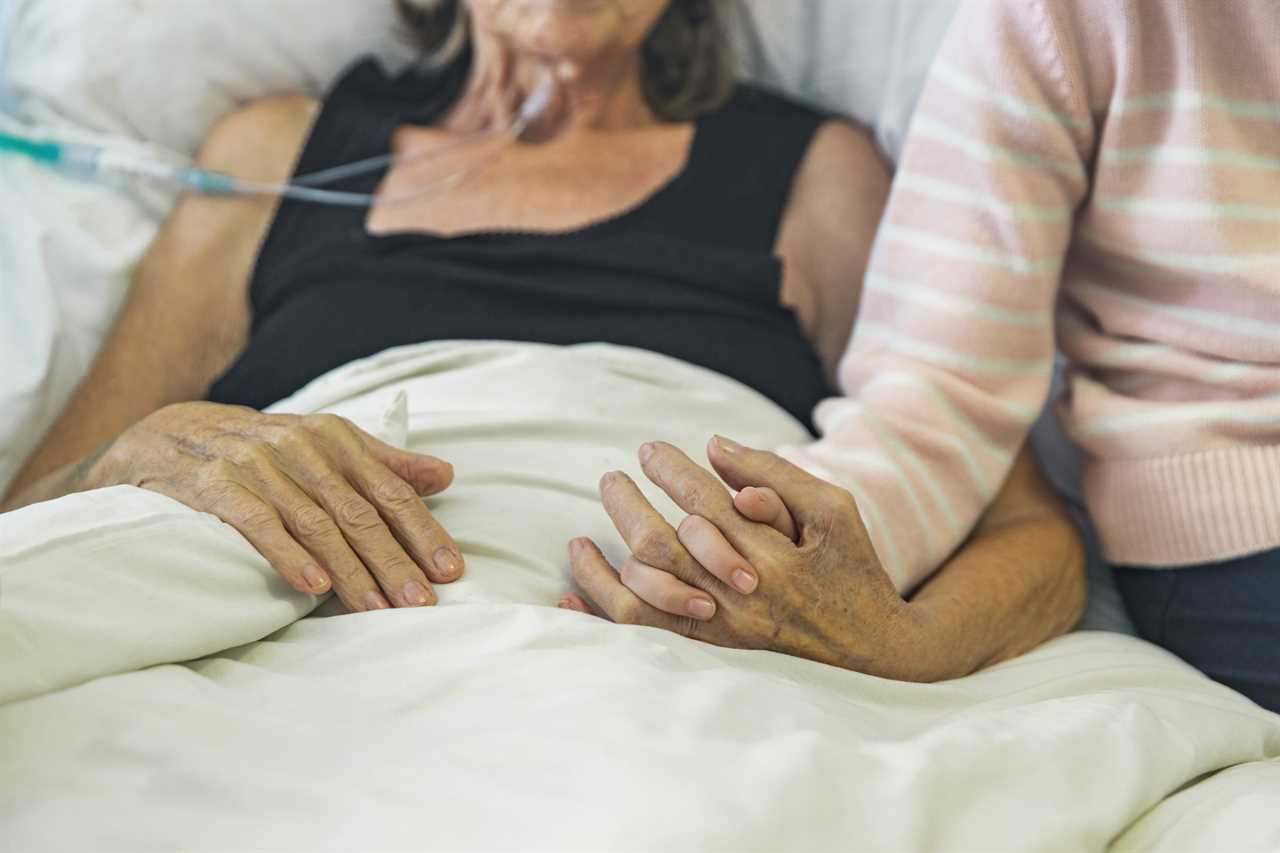BRITAIN faces a “silver tsunami” of cancer cases in old people as we all live longer, scientists warn.
By 2040, the number of over-70s with the disease is on track to surge by 60 per cent and past 300,000 per year for the first time.

Doctors say it is more difficult to treat older people because they have complex health problems
Experts say the NHS must gear up to tackle the “complex” task of treating more older people.
They often have other conditions like dementia or cannot handle harsh treatment if they are frail, making them harder to look after.
World cancer experts at the American Society of Clinical Oncology conference in Chicago warned this weekend of an “incoming silver oncologic tsunami”.
Dr Andrew Chapman, from Sidney Kimmel Cancer Center in New Jersey, said: “We know that cancer is a disease that is associated with ageing.
“What is often missed is that older adults’ issues are much different than average.
“We have a responsibility to meet the unique needs of older adults with cancer.”
Cancer Research UK estimates that, by 2040, there will be 506,000 cancer cases and 208,000 deaths every year in Britain – compared to 384,000 and 167,000 now.
Six in 10 patients will be over the age of 70, compared to a half currently.
More people live into old age and survive earlier bouts of disease, meaning cases will bunch up at the top of the age range.
Office for National Statistics figures show 183,459 over-75s were diagnosed in 2017 compared to 120,361 in 2007 – a 52 per cent rise.
Professor Charles Swanton, top doctor at CRUK, said: “The question is, how is the health system going to cope?
“We have a workforce problem in the NHS now and it’s a major concern.
“If we’re dealing with 30 per cent more cancer diagnoses we’re going to need at least 30 per cent more oncologists and surgeons.
“Given that it takes 15 years to train them, we are simply not training sufficient numbers of doctors to fill these positions.”
Dr Julie Gralow, chief medical officer at the ASCO, said: “Shortages in the cancer care workforce are a concern globally. We know we can do better.”
Ministers are expected to double UK medical school places to tackle the NHS staff crisis.
NHS cancer clinics are already under strain and have been missing treatment target times for years.
Four in 10 patients in England wait longer than two months between their first doctor’s appointment and starting treatment.
Caroline Abrahams, director at Age UK said: “We know that the majority of cancer patients are older people and, sadly, many are already waiting longer than they should.
“Our ageing population means there will inevitably be an increase in older people with cancer because it is often a disease of old age.
“To manage the increased demand the NHS will need more geriatricians who understand older people’s health.”
Experts also want more clinical trials on older patients to test how they react to treatment – current studies are mostly on younger people.
Professor Paul Pharoah, from Cedars-Sinai Medical Center in Los Angeles, said: “The benefits and harms of radiotherapy or chemotherapy are less well understood in older patients.”
An NHS spokesperson said: “We are working to ensure doctors are trained with the skills needed to meet the needs of an ageing population.”






